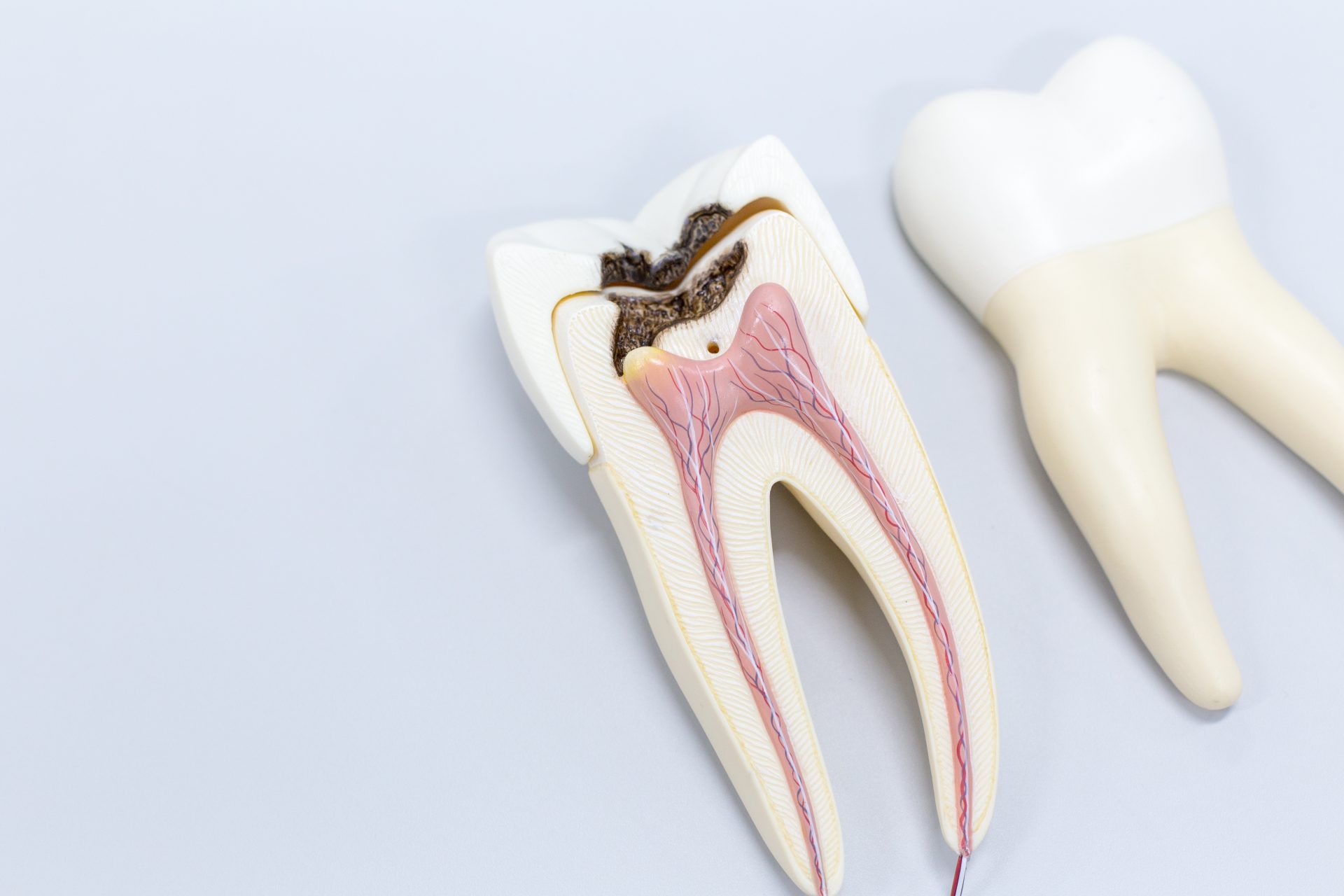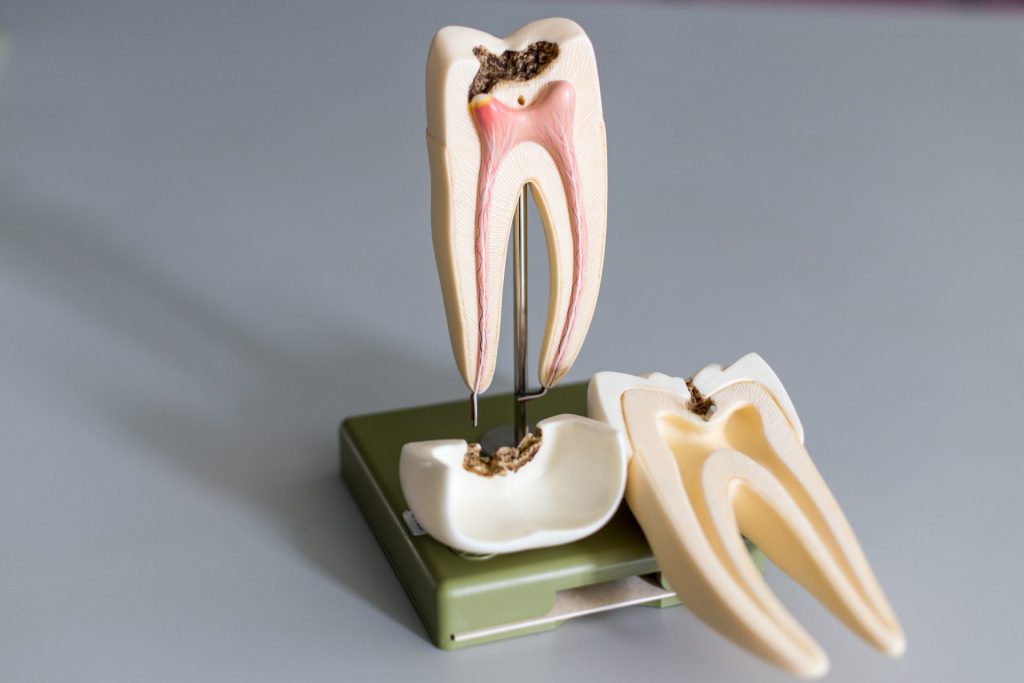Root Canal Treatment

Root Canal Treatment
The inside of your tooth is known as ‘pulp’ and consists of nerves and blood vessels.
There are several reasons why your tooth pulp may become infected. These can include wear, decay, gum disease, a cracked filling or other tooth injuries. It can lead to pain, swelling and, if left untreated, abscesses and even tooth loss.
Any signs of pulp infection shouldn’t be ignored. The infection can spread to your gums and jaw with serious health consequences. At Hills Dental Group, our aim is always to preserve your natural teeth. We perform root canal treatment to remove the infection from your tooth, reinforce it, and prevent further damage.

Do I Need Root Canal Treatment?
Sometimes a tooth that needs root canal therapy may present no symptoms at all. So, having regular and ongoing dental check-ups is essential. Check-ups help prevent, detect, and treat before potential dental issues become major.
Whilst each patient is unique, some of the common signs of needing root canal treatment are:
- Toothache (especially when chewing/applying pressure)
- Lingering sensitivity to hot and cold foods or beverages
- Darkening of your tooth
- A visible hole in your tooth
- Swollen, red or tender gums surrounding your tooth
- Neck or facial pain or swelling
What To Expect During Root Canal Treatment
At our Adelaide Hills dental practice, we understand that root canal treatment may be daunting. Modern dentistry, paired with our extra compassionate and gentle dental care, means having root canal treatment at Hills Dental Group is nothing to worry about. Root canal treatment is a routine procedure in which our dentists have a lot of experience.
Our dentists take the time to listen to your concerns and fully explain the treatment. So, you’ll always know what to expect. Before the treatment commences, the area is numbed. Your dentist will begin by removing any damaged bits of tooth and disinfecting your tooth’s chamber. They will then fill and seal it to prevent further bacteria from entering. Depending on your specific case, your dentist may complete the treatment by placing a dental crown.
It’s normal to feel some discomfort following a root canal treatment (once your anaesthetic wears off). This discomfort should be minimal and short-lived. Your dentist may prescribe you some medication to take post root canal treatment to manage any swelling or pain.
If you’re presenting symptoms of an infected tooth or are long-overdue a dental check-up, you must seek dental care.
